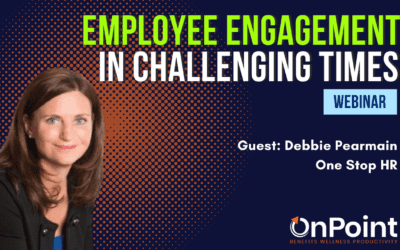One of the most overlooked healthcare costs is that of benefits management itself. Paper-based enrolment forms are frustratingly complicated, prone to errors, and a major drain on HR resources. But thanks to modern benefits solutions, they’re also becoming obsolete.
Putting pen to paper to fill multiple pages of enrolment forms is a painful experience for plan members – especially the younger generation – and plan administrators, who have to chase employees to get the forms back, decipher handwriting, then transfer the information into an admin portal, which is not always user-friendly.
Automating group benefits management means more than just convenience; it can reduce costly information errors by up to 30%, and save countless hours sifting through spreadsheets and paper forms. It’s a sound solution to mitigating risks related to the handling of sensitive personal data required from group benefits plan members.
While many Canadians still depend on paper enrolment forms, there are already multiple online platforms available. How to choose one that is right for you can be challenging, but here are some suggestions on how to compare different offerings.
Digital Security
Make sure that the employee data you will share with the tech platform will not be used for any other purpose than that of managing the group benefits plan. Beware of carrier-specific offerings, and investigate how the data will be used and where the revenue of the provider comes from. It is also important to ensure that all data will be hosted in servers located in Canada, therefore protected by Canadian law. Finally, ask for technical data related to the security of the platform, and read the service agreements and privacy policies that you will need to agree to in order to access the service.
Carriers and Advisors
Most group benefits platforms are owned by and/or biased towards a single group benefits carrier, which means that you’ll need to learn, and train your HR/Office administrators and plan members on a new portal every time you switch carriers. This can happen on average every three to four years.
Preferably, the platform you choose will be able to work with multiple group benefits carriers, making carrier switches seamless for administrators and employees alike. Another important point is that the platform you choose should allow you to keep the group benefits advisor of your choice. Advisors are meant to help you navigate the complexity of the group benefits industry, and your tech partner should help facilitate that process, rather than get in the way.
HR and Payroll
Online HR platforms are increasingly popular and can help ensure legislation is followed, and collaborators are being looked after. They can save you money by reducing admin time and mitigating risks, delaying the need to fill an HR position, and making existing teams more productive and strategic. Payroll solutions in turn are much more popular, and once set up and running properly, they are hardly ever replaced.
When comparing group benefits management platforms, check if they offer options to integrate with an HR system and if both benefits and HR data will sync with your existing payroll solution. It is possible for businesses both big and small to find a solution which offers group benefits administration, HR, and payroll all in one place – and it’s as easy as it sounds.




